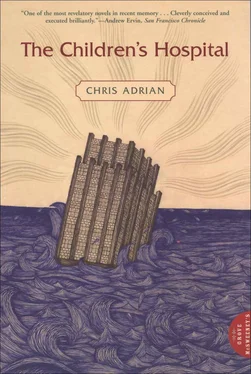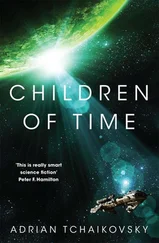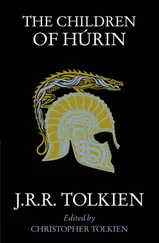Chris Adrian
The Children's Hospital
Lettera gesta docet, quid credas allegoria;
Moralis quid agas, quo tendas anagogia.
— Augustine of Dacia, Rotulus pugillaris

I am the recording angel, doomed to watch.
Never mind my sin. Here is my expiation and my reward: to orbit Jemma Claflin from her birth to her death, and fix my eyes always on her face the way better angels always look upon God’s glory. I fell back to earth and back through time to the night of her birth, and, bound to her heart by chains of air and spirit, have never since been more than a few hundred feet from her body. Whenever I tried to flee — there was a whole world to rediscover and witness, after all, and all the curving ways of time lay open before me, and a billion anguished lives called out to me to come and watch them, instead of a toddler with peas on her cheek — the chains would pull tight, hooks in my flesh. In all my years of watching I have never hated her, but I have often been bored, and if there are doodles in the margins of her book, and gaps in her story, if I have looked away from her to watch my brothers and sisters at play among the stars and missed here or there an episode of her life, if I have watched her brother, always burning bright to me, even though I knew his story, past and future, already by heart, it is because I am neither a perfect angel nor a perfect witness. I put off perfection with my mortal form, and what a relief to do it.
Never mind, for now, the quotidian discoveries of her infancy; do not look at her yet toddling after her brother, or trudging, head down, through her education. Beauty pageants and swim meets and drugs smoked or snorted under her brother’s tutelage are not the place to start; neither are the flights with her father over the Chesapeake Bay, or the nights drunk-diving into the past with her mother, or the nights she skated over the frozen river to crawl into her lover’s house and lie with him in his single bed. And look away from the funeral years; ignore the miracle her brother wrought. Consider her instead on the edge of her own greatness, separate from and grander than Calvin’s. There she is on the night of the storm, attending a birth, waiting while the rain falls and the clouds are heaping and piling in the sky and I am sighing all around her, finally. Finally!

Jemma thought that witnessing a birth ought to make a person exactly the opposite of horny. The rush of blood and fluid; the bitter odors; the screaming of a mother arrived too late for an epidural; and worst of all, the hideous dilation, the vagina that permitted the entrance of hands and arms and instruments sized and shaped more appropriately for barbeque than surgery, and disgorged the bloody cantaloupe. They should freeze you up, but they never froze her up, and sometimes, like on the night of the great storm, they put the need in her. So she found herself distracted by thoughts of Rob Dickens even at the most challenging and complicated delivery of her third-year medical student career: a gruesome baby born to a gruesome mother. The child, the expression of a jumble of chromosomal additions and deletions so unique that she was her very own syndrome, was hideous — too long and too short, too wide and too thin, with things that were not eyes where her eyes ought to have been, and a cuttlefish mouth — but she seemed sweet to Jemma, who stood over her among the white-suited pediatricians, a fellow, a resident, and an intern. Her cry was more dulcet than any Jemma had ever heard, probably because she was half dead and lacked the energy to voice a truly irritating scream. “Rub,” Jemma’s senior resident said to her, because she was only blotting at the wet baby with her towel. The mother was lovely in her flesh but seemed deformed in her soul. She shouted curses at her child while the anesthesiologist, scowling, pushed white, milky propofol into her veins, trying to shut her up. Not even her epithets and her screams cooled Jemma. Rob Dickens was not among the pediatricians in their bunny suits — one raised a laryngoscope with a flourish like a hoodlum clicking out a folding knife and then swooped in to intubate the now quiet and rather blue baby — but she knew where he was, waiting with the other students, residents, and staff for this unfortunately interesting case to arrive across the glass hall that connected the county hospital to the children’s hospital.
While she ought to have been calculating one-minute apgars for the child, she pictured Rob Dickens in his scrubs, his arms naked almost to the shoulder. When the resident asked her for the score she blushed and fumbled in her mind for the number, forgetting the categories — tone, cry, grimace, color, and what else? Not grace, not style, not symmetry, but these were what she thought of. The resident — a third-year named Natalie famous for the black cloud of acuity that hovered over her call nights — stared at Jemma coolly over her surgical mask, and Jemma remembered to count the heartbeat. She reached out to pinch the umbilicus and feel the pulse, much slower than her own, which always raced when she was mortified by the ignorance and confusion she manifested when faced with one of these student tasks. “Four,” she said at last.
“Generous,” said Natalie, and turned her attention fully to the task of bag-ventilating the infant. Despite the sedatives, the mother was still telling them to kill the baby with a knife, with a brick, with a smothering pillow. She sat up suddenly, an obscene apparition, hauling herself up by her knees, her perfect, unnatural breasts glaring over the sterile blue drape, a tongue of clotted blood lolling out of her vagina. She calmed briefly and spoke in sane, gentle tones. “Just do it now, before she gets us. It’s easy now but it won’t always be so easy.” She reached out, grabbing for the instrument tray, until two nurses pushed her back. Jemma thought of Rob, pacing with his hands folded on top of his head, like he always did when he was impatient for a particular thing to happen. She thought of his arms again. She didn’t have to close her eyes to be able to see them.
“Let’s go,” said Natalie. She jerked her head imperiously at her intern, Dr. Chandra, who had got his stethoscope caught up in the oxygen tubing and was trying to untangle it. Natalie looked back expectantly at the fellow, Emma, who gave one sharp nod to indicate her blessing. They moved out of the operating room and down the long beige halls of the county hospital. Patients, women walking in the hope of accelerating their labor, spun out of their way as the team raced along, Emma pushing the isolette, Natalie bagging, and Dr. Chandra still trying to untangle his stethoscope. Jemma, not a good hurrier, trailed after the isolette. It had been part of the reason she failed her surgery rotation, this reluctance to hustle, and even when her grade was at stake she could never bring herself to be snappy, or do that wiggling power walk on rounds, or even run full-out to a code or a trauma — if you were too fast, after all, you got there first. She ran a few steps, then slowed, then ran again. As they approached the bridge, Natalie called back to her to get the door, since Dr. Chandra had also entangled his name tag and calculator in the mess of tubing.
Jemma ran ahead to slap the giant steel button that opened the doors. They swung out leisurely, opening on the storm that flashed and raged around the glass hall. The team pushed through even before the doors were fully open. Jemma ran ahead again, meaning to slap the far button with the same authority and force with which she’d hit the near one, but she tripped, then rolled fast and heavy into the door. Natalie yelled, “Get out of the way!” Jemma hit the button and the second set of doors swung open, less leisurely than those at the other end of the hall, but not fast. She scooted on her bottom, pushed aside by the door and finally wedged against the glass wall as the isolette flew past. Lightning arched overhead and showed her a vast parking lot, empty except for a few dozen dead cars stranded in water up to their headlights.
Читать дальше














